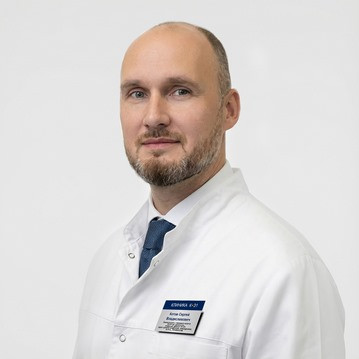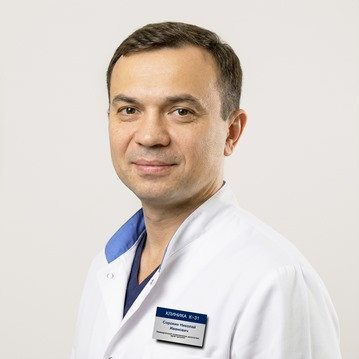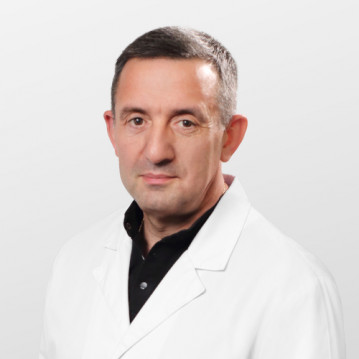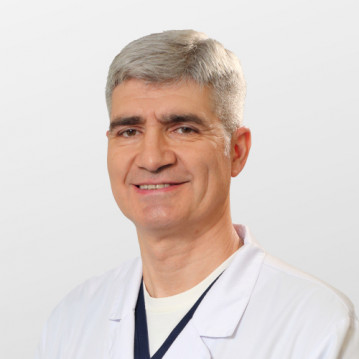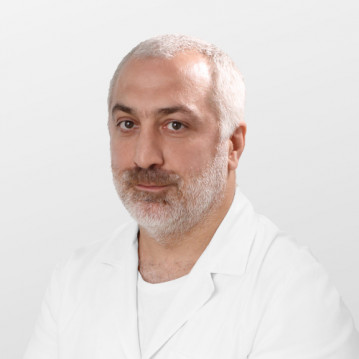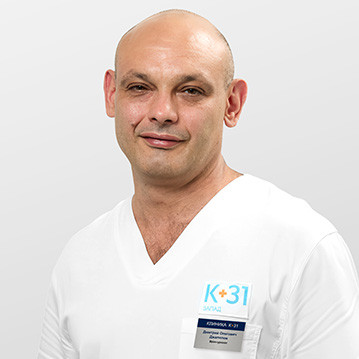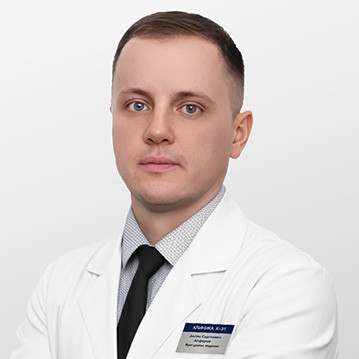Renal colic is an attack of sharp pain in the lumbar region. It occurs when urine cannot pass from the kidneys to the bladder. The reason may be a stone that blocks the path. As well as another disease that affects the outflow of urine from the kidney. Urine builds up and presses and stretches the tissue, causing pain.
This is an unbearable pain that starts in the lower back and side, then spreads down the thigh to the genitals. Accompanied by:
- nausea;
- vomit;
- sweating;
- frequent urination.
Diagnosis includes laboratory and instrumental examinations. If the stone is large, it is treated with surgery.
The multidisciplinary medical center "K + 31" has the necessary conditions for the diagnosis and treatment of kidney diseases. The department of urology has modern ultrasound, CT, MRI and X-ray machines from leading manufacturers of medical equipment. Reception is conducted by urologists with a scientific degree and experience of more than 14 years. Treatment is prescribed taking into account international standards based on European and American recommendations. Thanks to this, patients receive treatment that increases the chances of recovery.
Renal colic causes
The main cause is an obstruction in the ureter that prevents urine from passing from the kidney to the bladder. These states include:
- The formation of stones in the kidney or bladder. Stones are formed from minerals that are present in the urine and come in different sizes.
- Narrowing of the ureter due to tumor or inflammation.
- Dilation of the ureter inside or outside the kidney, which may be due to disease.
- Injury or injury resulting from an accident or surgery.
- Various urinary disorders such as backflow of urine from the bladder to the ureter and kidney.
- Rarely, renal colic is caused by hereditary diseases, such as a disorder of calcium metabolism.
This problem occurs at any age in men and women.
Why and how kidney and bladder stones are formed
Urine in a dissolved state contains:
- calcium;
- oxalate;
- phosphate;
- urea;
- acids.
If the concentration of these substances is high, the urine crystallizes and stones form. The composition of stones depends on the type of minerals and salts.
Risk factors
Factors that increase the likelihood of stone formation include:
- Lack of fluid in the body - urine becomes more concentrated, which increases the likelihood of crystal formation.
- Frequent consumption of foods rich in calcium. Such as milk, cheese, yogurt, and foods containing oxalates such as spinach, rhubarb, chocolate, and coffee.
- Certain medical conditions, such as hyperparathyroidism, cystic kidney disease, or inflammation of the bladder.
- Family predisposition to kidney stones.
To reduce the chance of crystal formation, you should:
- drink enough water;
- reduce calcium and oxalate-rich foods․
If you have complaints, you need to see a doctor and undergo an examination.
Symptoms of renal colic
Symptoms of renal colic are:
- Sharp pain in the lower back or side that radiates down the thigh to the groin.
- Feeling nauseous.
- Vomiting.
- Frequent urination.
- Pain when urinating.
- Blood in the urine.
- High blood pressure.
- Fever.
- Cold sweat.
The pain starts suddenly and lasts from a few minutes to several hours, and sometimes days. It can be so strong that it causes convulsions and may lead to loss of consciousness.
If you have similar symptoms, it is important to see a doctor or call an ambulance. Highly qualified urologists of the K + 31 clinic have been treating kidney diseases for more than 14 years and will help you figure out if your symptoms are related to renal colic. If necessary, additional examinations will be carried out to exclude or confirm the alleged diagnosis.
